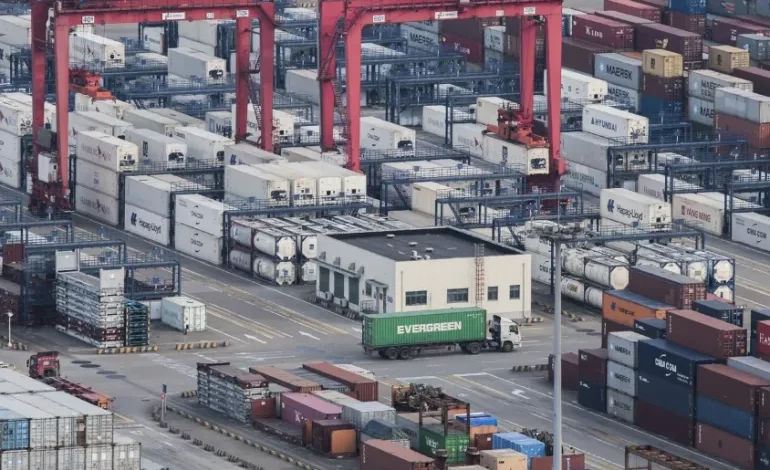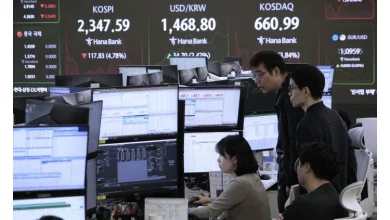
The United States government has highlighted corruption as a significant hurdle for trade and investment in Nigeria, calling it a barrier that continues to obstruct American companies operating in the country.
In its 2025 National Trade Estimate Report on Foreign Trade Barriers, the U.S. Trade Representative (USTR) expressed concern over the pervasive lack of transparency in Nigeria’s tender processes, which remains a major issue for U.S. firms. The report detailed the ongoing challenges, including demands for “facilitative” payments, which continue to affect day-to-day business operations for U.S. companies.
The USTR also pointed out that efforts to strengthen anti-corruption measures have been severely hindered by political infighting and a lack of cooperation between government ministries. Additionally, the report raised concerns over the Nigerian justice system’s ability to convict and appropriately sentence those involved in corruption-related crimes, leaving questions about the effectiveness of current anti-corruption efforts.
Another longstanding issue affecting trade between the two nations is the continued delay in approving import permits for U.S. agricultural products. Despite several requests by the U.S. government since 2019 to negotiate market access for food and agricultural imports, Nigeria has shown little progress in granting these permits, limiting U.S. companies’ access to one of Africa’s largest consumer markets.
The report also pointed to Nigeria’s inadequate capacity to review certificates, inspect goods, and conduct necessary testing, resulting in significant delays for imports. As a result, many traders are forced to rely on informal channels, circumventing official procedures.
On tariffs, the report noted that while Nigeria’s average Most-Favored-Nation (MFN) tariff rate stood at 12 percent in 2023, agricultural products were subject to significantly higher rates averaging 15.9 percent while non-agricultural goods faced 11.4 percent tariffs. The report also criticized Nigeria for imposing multiple supplementary charges, which significantly raise the effective tariff rates for importers, with 79 tariff lines attracting combined duty and additional import fees of 50 percent or more. For 17 of those tariff lines, the combined duty plus other charges exceeded the 70 percent threshold set by the Economic Community of West African States (ECOWAS).
Moreover, Nigeria’s ongoing import bans on 25 product categories, including poultry, beef, used vehicles over 12 years old, and certain consumer goods like fruit juice and soaps, continue to hinder trade. These import restrictions are seen as major trade barriers that have long been a point of contention between Nigeria and its trading partners.
The report also highlighted systemic issues within Nigeria’s customs administration. U.S. companies reported problems such as inconsistent application of customs regulations, lengthy clearance procedures, and widespread corruption. The customs modernization project, which was approved in 2020 with an investment of $3.1 billion to automate the process, has faced significant delays and is currently mired in legal disputes.
Another area of concern is Nigeria’s public procurement system. The report stated that U.S. companies struggle to access government contracts due to a lack of transparency, as well as issues with contract payments and adherence to procurement guidelines. Many Nigerian government agencies fail to comply with established procurement procedures, and there are concerns that foreign government-subsidized financing may unduly influence the awarding of contracts.
Although Nigeria passed the Copyright Act in 2022, aimed at strengthening intellectual property protections, enforcement remains weak. Counterfeit goods especially pharmaceuticals, automotive parts, and other consumer products are still widely available in Nigeria, posing significant risks to consumer health and safety.
The report also raised concerns about the regulatory environment surrounding digital trade. New guidelines issued by the National Information Technology Development Agency require that all data concerning Nigerian citizens be stored within the country. While these data localization rules are not strictly enforced, they create uncertainty for businesses operating in Nigeria. Additionally, the Finance Acts of 2020 and 2021, which introduced new taxes on digital services provided by foreign companies to Nigerian consumers, have raised concerns among U.S. firms about the potential negative impact on their operations.
In the insurance sector, the report pointed to restrictions on foreign participation in Nigeria’s oil and gas risk reinsurance market, as well as mandatory registration requirements for advertising with the Advertising Regulatory Council of Nigeria. These restrictions are seen as additional barriers to foreign investment in key sectors of the Nigerian economy.
Regarding foreign exchange, despite the Central Bank of Nigeria’s efforts to unify exchange rates in 2023 and lift restrictions on access to foreign currency for 43 previously banned items, companies still face significant difficulties. The approval process for the repatriation of funds remains a major barrier, with frequent delays and denials. The USTR highlighted that as of March 2024, only $4.6 billion of an estimated $7 billion in forex backlogs had been cleared, leaving $2.4 billion still under review.
Nigeria’s main ports, particularly Apapa in Lagos, were also identified as among the most expensive globally, due to congestion, poor infrastructure, and security concerns. The average delay of 30 days to clear a container ship makes Apapa one of the costliest ports for shipments from the United States. Although the Nigerian government has created a Ministry of Marine and Blue Economy to address port inefficiencies, the report concluded that significant barriers still exist in Nigeria’s trade and investment environment.
Despite some positive steps, such as the passage of intellectual property reforms and efforts to improve forex regulations, the U.S. government emphasized that trade and investment barriers in Nigeria remain widespread and problematic for U.S. companies.





